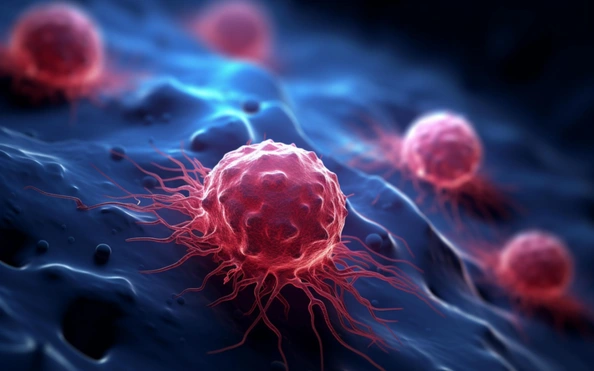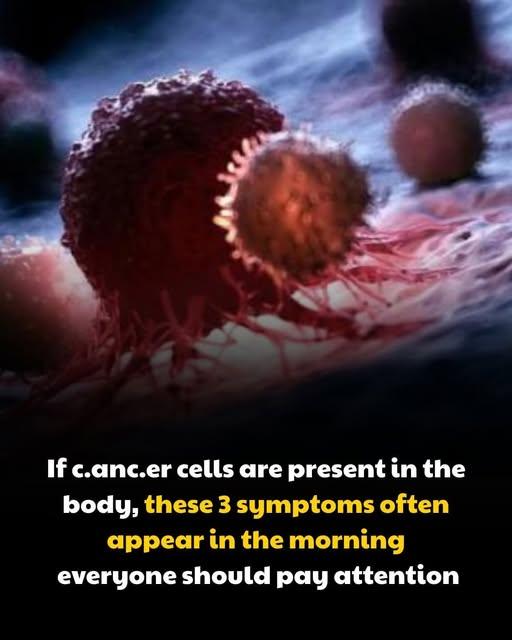Cancer can affect anyone, even people who seem healthy, eat well, and exercise.
This is why staying informed and being aware of the signs and symptoms of cancer can be crucial for taking timely action.
Below are three symptoms that are likely to appear in the morning if cancer is present in your body. Of course, experiencing any, or even all three, doesn’t necessarily mean you are sick, but ignoring them entirely may lead to delaying diagnosis and treatments in some cases.

One of the first symptoms to watch for is morning fatigue.
While we all feel tired now and then, exhaustion can come in many forms and it should be concerning if you rested well during the night and still feel like you haven’t slept at all.
This may happen because cancer cells compete with healthy cells for nutrients and energy, leaving your body drained.
If the morning fatigue is persistent and won’t go away after two weeks, seek medical advice and get checked.
Another subtle warning sign is night sweats that leave you soaked in the morning even when your room is cool.
While experiencing night sweats can be a result of stress or certain hormonal changes, sometimes cancers like lymphoma or leukemia can be the culprit.
Cancer-linked night sweats usually come on abruptly and soak your clothes or sheets, rather than the light sweating you get from warmth or activity.
Pain is another thing to notice.
Morning stiffness or aches are normal sometimes, but persistent pain that doesn’t improve with movement or stretching shouldn’t be ignored.
It’s important to note that some cancers cause inflammation, which can show up as back, chest, or joint pain. If the pain keeps coming back or worsens, talk to a healthcare professional. Even if it’s nothing serious, you’ll know for sure.
While none of these symptoms automatically mean you have cancer, consistently ignoring repeated, unexplained changes in your body can lead to missed opportunities for early intervention—moments when getting help could make a critical difference. Our bodies often speak to us in subtle ways, and learning to listen is a powerful form of self-care. Whether it’s persistent fatigue, night sweats, unexplained pain, or other ongoing discomforts, it’s important not to brush them aside or chalk them up to stress or a busy schedule.
Early detection doesn’t just increase your treatment options—it can dramatically improve outcomes and save lives. Acting early can often mean less invasive procedures, quicker recovery, and a stronger chance of long-term health. It’s also worth remembering that behind every statistic are real people—mothers, fathers, siblings, friends—each with their own story and loved ones who care deeply for them.
If something feels off, trust your instincts. Reach out to a medical professional, even if it’s just for peace of mind. What may seem small or insignificant now could turn out to be the first step in catching something serious early. Taking action isn’t overreacting—it’s valuing your health, your future, and the people who love you.
Please SHARE this article with your family and friends on Facebook.





